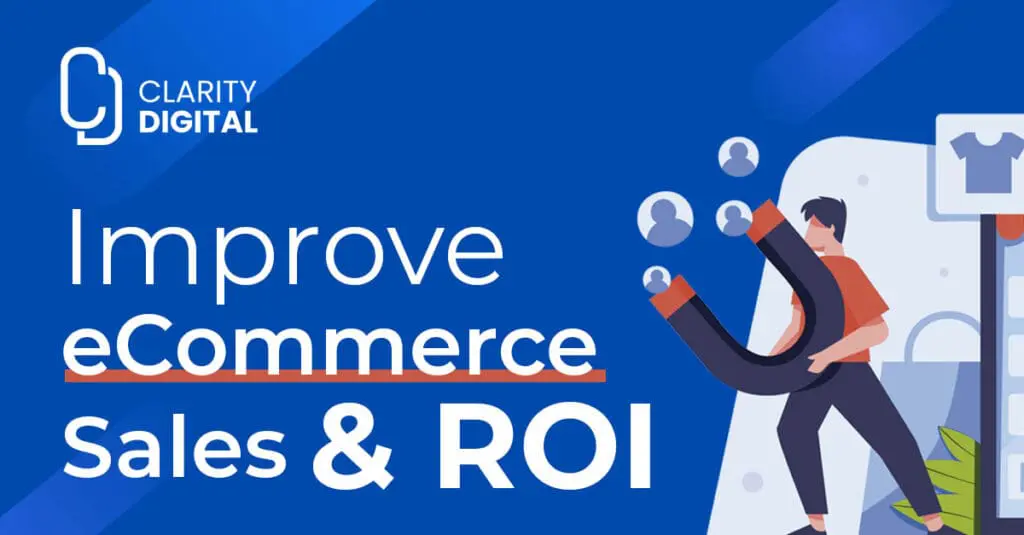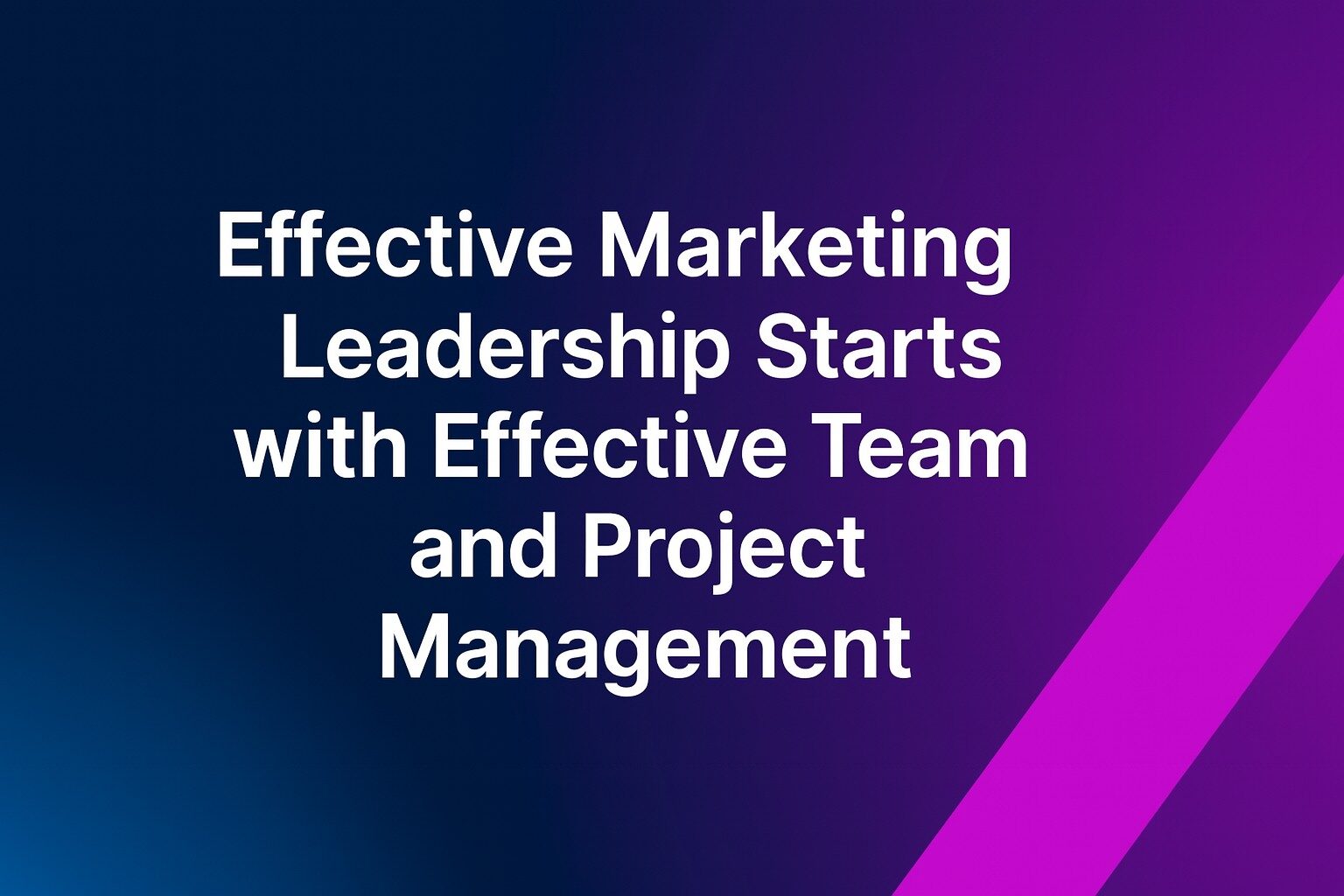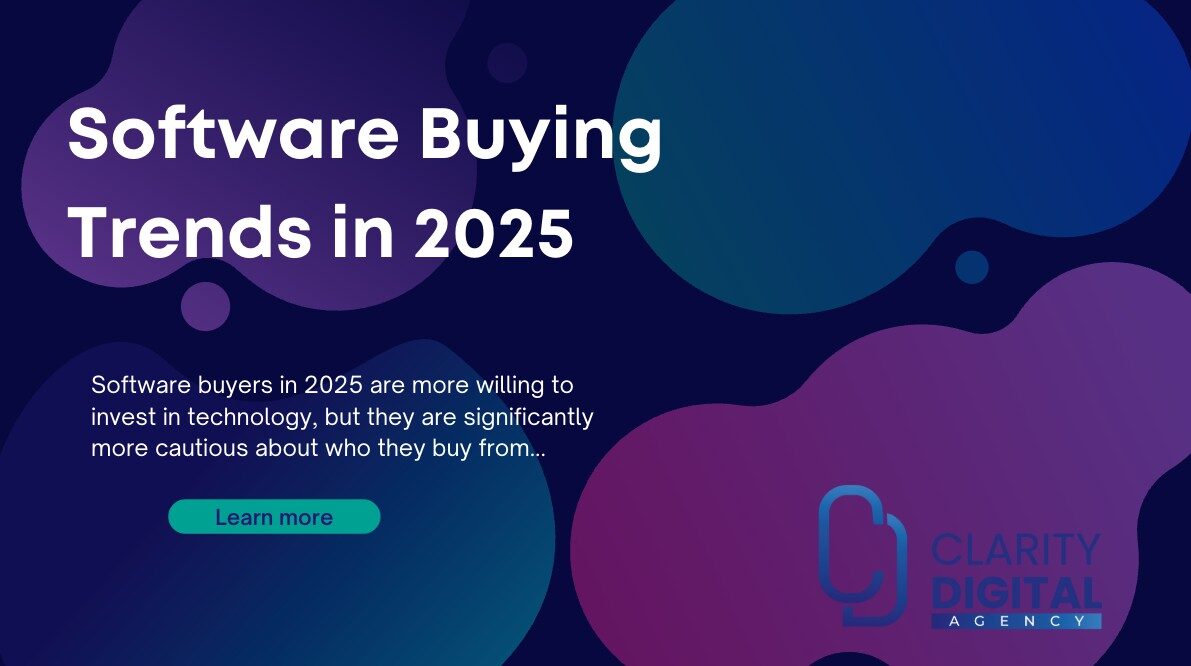B2B manufacturers face unique challenges and opportunities in today’s digital climate. Leveraging digital marketing and SEO strategies is crucial for B2B manufacturers to gain a competitive edge, attract more clients, and drive business growth. However, many manufacturers struggle to effectively navigate the intricacies of online marketing.
This comprehensive guide will delve into the intricacies of B2B manufacturing marketing and SEO strategies. Whether you are a seasoned professional or just getting started, this guide will equip you with the knowledge and insights needed to successfully harness the power of digital marketing to reach your target audience, boost brand awareness, and achieve sustainable growth.
Let’s dive into the world of manufacturing B2B marketing and explore how these strategies can revolutionize your business.
Understanding the Unique Dynamics of B2B Manufacturing Marketing

The Complex Landscape of B2B Manufacturing Marketing
The B2B manufacturing marketing landscape is unlike any other. Unlike B2C businesses that focus on mass appeal and quick consumer purchases, B2B manufacturers operate in a niche industry where the decision-making process involves multiple stakeholders and extensive research. Here are some key dynamics that shape the unique landscape of B2B manufacturing marketing:
- Longer Sales Cycles: The B2B manufacturing sales cycle is typically longer and involves numerous interactions. From initial inquiries to negotiations and final approvals, building trust and establishing relationships is crucial.
- Multiple Decision-Makers: B2B purchasing decisions often involve multiple stakeholders, such as procurement managers, engineers, and executives. Each decision-maker is unique and requires personalized communication.
- Technical Expertise: B2B buyers prioritize technical expertise, product quality, and reliability. Manufacturers must demonstrate their industry knowledge and provide detailed information about their products and processes.
- Relationship Building: Building and maintaining long-term relationships with clients is vital in the B2B manufacturing space. Manufacturers must emphasize their ability to provide consistent support, exceptional service, and innovative solutions.
To succeed in this complex landscape, manufacturers must employ strategic B2B marketing techniques that align with the specific needs and expectations of their target audience.
Building a Strong Foundation with Buyer Personas

Developing Detailed Buyer Personas for Targeted Marketing
Creating detailed buyer personas is a fundamental step in any successful B2B manufacturing marketing strategy. By understanding your target audience and tailoring your marketing efforts to meet their unique needs, you can increase engagement, drive conversions, and foster brand loyalty. Below are insights on how to develop buyer personas for your B2B manufacturing business:
- Identify Decision-Makers and Influencers: In the B2B manufacturing sector, purchasing decisions often involve multiple individuals with varying roles and responsibilities. Identify the key decision-makers and influencers in the buying process, such as procurement managers, engineers, and executives.
- Conduct Market Research: Use surveys, interviews, and data analysis to gain insights into your target audience’s preferences, while also analyzing industry reports and social media to gather valuable information about potential clients.
- Create Persona Profiles: Develop comprehensive persona profiles that include demographic information, job roles, challenges, goals, and preferred communication channels. Use these profiles to guide your marketing strategy and tailor your messaging to resonate with each persona.
- Tailor Content and Communication: With detailed buyer personas in hand, you can create content that speaks directly to your target audience’s needs and preferences. Use personalized messaging and targeted content to address their pain points, showcase your expertise, and demonstrate the value of your manufacturing solutions.
By developing detailed buyer personas, you can ensure that your marketing efforts are aligned with the specific needs and expectations of your target audience, resulting in more effective campaigns and improved customer satisfaction.
Crafting a Compelling Brand Identity for Manufacturing Businesses
The Importance of Building a Strong Brand Presence in Manufacturing
Building a strong brand presence is essential for standing out and capturing the attention of potential clients in B2B manufacturing. Your brand identity encompasses the values, reputation, and perception of your manufacturing business. Here are some strategies to help you establish a compelling brand presence:
- Consistent Branding Across Channels: Ensure your brand identity is consistent across all marketing channels, including your website, social media profiles, print materials, and trade show displays. Consistency builds trust and reinforces brand recognition among your target audience.
- Unique Value Proposition (UVP): Clearly articulate your unique value proposition, which sets your manufacturing business apart from competitors. Highlight key differentiators such as product quality, innovation, sustainability practices, or customer-centric solutions.
- Brand Storytelling: Share your company’s story, values, and mission through engaging storytelling. Connect with your audience on an emotional level by showcasing the people behind your products, sharing success stories, and demonstrating the impact of your manufacturing solutions.
- Visual Identity and Design: Invest in a professional and cohesive visual identity, including your logo, color palette, typography, and design elements. Visual consistency helps create a strong brand impression and reinforces brand recognition.
- Reputation Management: Monitor and manage your brand’s online reputation by actively engaging with customers, addressing feedback, and highlighting positive customer experiences. Encourage satisfied clients to leave reviews and testimonials that showcase your expertise and reliability.
By crafting a compelling brand identity, you can differentiate your manufacturing business from competitors, build trust with your audience, and position yourself as a leader in the industry.
Leveraging Digital Marketing Channels for B2B Manufacturing Success
Harnessing the Power of Social Media Marketing in Manufacturing

In the digital age, social media has become an indispensable tool for B2B manufacturers to connect with industry professionals, engage with potential clients, and build brand awareness. Here are some effective strategies for leveraging social media in your manufacturing marketing efforts:
- Choose the Right Platforms: LinkedIn, Twitter, and Instagram are popular choices for B2B manufacturers, offering opportunities to connect with industry professionals and showcase your products and expertise.
- Engage with Industry Professionals: Actively participate in industry-specific discussions, groups, and forums on social media. Share valuable insights, answer questions, and contribute to conversations to establish your authority and build relationships with potential clients.
- Share Engaging Content: Create and share high-quality content that resonates with your audience. This includes blog posts, videos, infographics, and case studies that showcase your manufacturing capabilities, industry knowledge, and customer success stories.
- Leverage LinkedIn for Networking: Build a strong B2B presence on LinkedIn presence by optimizing your company page, sharing industry news, and connecting with professionals in your target market.
- Run Targeted Advertising Campaigns: Use social media advertising to reach specific audiences and drive traffic to your website. Create targeted campaigns that align with your marketing goals, whether it’s brand awareness, lead generation, or product promotion.
By harnessing the power of social media marketing, B2B manufacturers can expand their reach, engage with their audience, and establish themselves as thought leaders in the industry.
The Role of Email Marketing in B2B Manufacturing
Email marketing remains a highly effective channel for B2B manufacturers to nurture leads, communicate with existing clients, and drive conversions. Here’s how you can optimize your email marketing efforts:
- Segmentation and Personalization: Segment your email list based on criteria such as industry, company size, or previous interactions. Create email marketing messages with content tailored and personalized for the specific needs of each audience.
- Lead Nurturing Campaigns: Implement automated email workflows to nurture leads throughout the buyer’s journey. Provide valuable content, educational resources, and product information to guide prospects toward making informed purchasing decisions.
- Engaging Content and Design: Use compelling subject lines, clear calls-to-action, and well-designed visual templates to capture your audience’s attention. action.
- A/B Testing and Optimization: Conduct A/B testing to evaluate different email elements, such as subject lines, content layout, and CTA buttons. Use data-driven insights to optimize your email campaigns for better open rates, click-through rates, and conversions.
- Customer Retention Strategies: Use email marketing to maintain communication with existing clients and foster long-term relationships. Send personalized follow-ups, exclusive offers, and product updates to keep your brand top-of-mind.
By leveraging email marketing effectively, B2B manufacturers can nurture leads, drive conversions, and build lasting relationships with their clients.
Webinars and Virtual Events: Engaging Your B2B Audience
In the B2B manufacturing space, webinars and virtual events have emerged as powerful tools for engaging with potential clients, showcasing expertise, and building relationships. Here’s how you can make the most of these digital marketing channels:
- Choose Relevant Topics: Select webinar topics that address your target audience’s pain points, industry trends, or innovations in manufacturing. Provide valuable insights and actionable takeaways that resonate with attendees.
- Collaborate with Industry Experts: Partner with industry experts, thought leaders, or complementary businesses to co-host webinars and virtual events. This collaboration enhances credibility and expands your reach to a wider audience.
- Promote Your Events: Use engaging content to drive people to your website to promote webinars and virtual events. Create inventive landing pages, content-rich email marketing, and social media, Z clear registration forms, and compelling CTAs to encourage sign-ups.
- Engage with Attendees: During the event, engage with attendees through interactive polls, Q&A sessions, and live chat. Encourage participation and address questions to create a more interactive and valuable experience.
- Repurpose Content: After the event, repurpose webinar content into blog posts, video snippets, or downloadable resources. This extends the lifespan of your content and provides additional value to your audience.
By incorporating webinars and virtual events into your marketing strategy, B2B manufacturers can demonstrate expertise, connect with potential clients, and drive engagement with their target audience.
Enhancing Customer Experience for B2B Manufacturers
Delivering Exceptional Customer Support in Manufacturing
Providing exceptional customer support is a cornerstone of successful B2B manufacturing marketing. Manufacturers must prioritize customer satisfaction and build lasting relationships in an industry where trust and reliability are paramount. Here are some strategies for enhancing customer support:
- Multi-Channel Support: Customer support is offered through multiple channels, including phone, email, live chat, and social media. This ensures clients can easily reach your team for technical assistance or other concerns.
- Responsive Communication: Respond promptly to customer inquiries and provide timely updates on order status, delivery times, or product availability. Effective communication builds trust and demonstrates your commitment to client satisfaction.
- Technical Expertise: Equip your customer support team with in-depth technical knowledge about your products and processes, allowing them to address complex inquiries and provide valuable guidance to clients.
- Proactive Problem Solving: Anticipate potential issues and proactively reach out to clients with solutions or preventive measures. This not only resolves problems efficiently but also showcases the dedication to customer success.
- Feedback and Continuous Improvement: Gather feedback from clients to identify areas for improvement in your products, services, or support processes. Actively address feedback and implement changes to enhance the overall customer experience.
By prioritizing exceptional customer support, B2B manufacturers can foster strong client relationships, improve brand loyalty, and differentiate themselves in a competitive market.
Streamlining the Sales Funnel for B2B Manufacturing
Optimizing the sales funnel is a critical aspect of B2B manufacturing marketing. By streamlining the sales process and guiding potential clients through each stage of the buyer’s journey, manufacturers can improve conversion rates and drive business growth. Here are some strategies for optimizing your sales funnel:
- Lead Generation Tactics: Use lead magnets such as free reports, industry guides, or consultation offers to capture potential clients’ contact information. It is vital to incorporate effective lead capture forms on your website and landing pages.
- Lead Nurturing Workflows: Develop automated lead nurturing workflows that deliver personalized content to prospects at different stages of the buyer’s journey. Additionally, provide educational resources, case studies, and product information to move leads closer to making a purchase decision.
- Sales and Marketing Alignment: Collaboration between sales and marketing is vital to creating a seamless buyer’s journey. Regular communication to share insights and align efforts will deliver consistent messaging to potential clients.
- Conversion Rate Optimization (CRO): Optimize landing pages, CTAs, and website content to enhance the user experience and increase conversion rates. Conduct A/B testing to identify the most effective elements and refine your approach.
- Post-Purchase Engagement: Engage with clients after the sale to foster long-term relationships by providing onboarding resources, follow-up support, and exclusive offers to encourage repeat business and brand loyalty.
By streamlining the sales funnel and aligning sales and marketing efforts, B2B manufacturers can improve conversion rates, enhance customer satisfaction, and achieve sustainable growth.
Harnessing the Power of Content Marketing in Manufacturing
Creating Informative and Engaging Content for B2B Audiences
Content marketing is a cornerstone of successful B2B manufacturing marketing. Creating informative and engaging content that addresses challenges and educastes is an important aspect to position your manufacturing business as a thought leader. Here are some content marketing strategies for B2B manufacturers:
- Educational Blog Posts: Publish in-depth blog posts that provide valuable insights into industry trends, best practices, and technological advancements. Use data-driven research and real-world examples to support your claims.
- Technical White Papers and eBooks: Offer downloadable whitepapers and eBooks that delve into complex topics, such as “Innovations in Industrial Automation,” or “Sustainable Manufacturing Practices.” These resources demonstrate your expertise and provide value to industry professionals.
- Video Content: Create videos that showcase your manufacturing processes, highlight product features, or provide client testimonials. Videos are highly engaging and can be shared across various platforms to reach a wider audience.
- Case Studies and Success Stories: Develop detailed case studies that highlight successful projects and the impact of your manufacturing solutions. Use real-world examples to demonstrate your capabilities and build credibility.
- Infographics and Visual Content: Use infographics to simplify complex data and processes, making them easier to understand for your audience. Visual content enhances engagement and can be shared across social media platforms.
Mastering SEO for B2B Manufacturing Success
The Role of Keyword Research in Manufacturing SEO
Keyword research is the foundation of any successful SEO strategy. For B2B manufacturers, targeting the right keywords is essential to attract relevant traffic, improve search engine rankings, and reach potential clients. Here’s how to conduct effective keyword research for manufacturing SEO:
- Industry-Specific Keywords: Focus on industry-specific keywords that accurately reflect your products and services. Use tools like Ahrefs, SEMrush, and Google Keyword Planner to identify relevant keywords and assess their search volume and competition.
- Long-Tail Keywords: Target long-tail keywords that capture specific search intent. Long-tail keywords often have lower competition and higher conversion potential. For example, instead of targeting “industrial machinery,” use “custom CNC machining services for automotive parts.”
- Competitive Analysis: Analyze competitor websites to identify keyword opportunities and gaps in their strategy. Identify keywords they are targeting and assess how you can differentiate your approach to capture a unique audience.
- Intent-Based Keywords: Understand the intent behind search queries and categorize them as informational, navigational, or transactional. Create content that aligns with each intent to guide potential clients through the buyer’s journey.
- Regular Keyword Updates: Update your keyword strategy regularly by reviewing search trends and industry developments. Adapt to changes in user behavior and emerging technologies to maintain a competitive edge.
By conducting comprehensive keyword research, B2B manufacturers can optimize their SEO efforts and attract relevant traffic to their websites.
Optimizing On-Page SEO for Manufacturing Websites
On-page SEO is crucial for improving the visibility and search rankings of manufacturing websites. Optimizing key elements of your site can enhance the user experience and ensure search engines can understand and index your content. Here are some on-page SEO strategies for B2B manufacturing websites:
- Title Tags and Meta Descriptions: Craft unique and compelling title tags and meta descriptions for each page on your website. Incorporate target keywords naturally and accurately describe the content to improve click-through rates.
- Headings and Subheadings: Use H1, H2, and H3 tags effectively to structure your content and highlight important information. Incorporate relevant keywords into headings and subheadings for better search engine understanding.
- Internal Linking: Implement internal links to guide visitors through your website and distribute authority across pages. Link to related products, case studies, or blog articles to provide a cohesive user experience and encourage exploration.
- URL Structure: Create clean and descriptive URLs that include relevant keywords. Avoid using unnecessary numbers or symbols in URLs, as they can confuse users and search engines.
- Image Optimization: Optimize images by compressing file sizes, using descriptive alt text, and incorporating relevant keywords. Proper image optimization improves page load times and enhances accessibility for visually impaired users.
By implementing on-page SEO best practices, B2B manufacturers can improve their website’s search visibility, enhance the user experience, and drive organic traffic.
Technical SEO for Manufacturing Websites: Ensuring a Strong Foundation
Technical SEO plays a vital role in ensuring that manufacturing websites are optimized for search engines and provide a seamless user experience. Addressing the technical aspects allow manufacturers to improve site performance, crawlability, and search engine rankings. Below are some technical SEO strategies for B2B manufacturing websites:
- Site Architecture: Design a clear and logical site architecture that makes it easy for search engines to crawl and index your pages. Use a hierarchy that prioritizes important content and includes an XML sitemap for better indexing.
- Mobile Optimization: Ensure your website is fully responsive and provides a seamless experience across all devices, as many B2B buyers conduct research on mobile. Use responsive design techniques and test your site’s performance on different devices.
- Page Speed Optimization: Improve loading times by compressing images, using a content delivery network (CDN), and minimizing code. Fast-loading pages contribute to a better user experience and improved search engine rankings.
- Secure Your Site: Implement HTTPS to secure your website and protect user data. Security is a ranking factor for search engines and builds trust with visitors.
- Schema Markup: Use schema markup to provide search engines with additional context about your content. Schema markup can enhance search visibility by enabling rich snippets, which display additional information in search results.
B2B manufacturers can ensure their websites are optimized for search engines and a positive user experience by addressing technical SEO aspects.
Building Authority with Backlinks for Manufacturing SEO
Backlinks are a critical component of manufacturing SEO, as they signal trust and authority to search engines. Garnering high-quality backlinks from reputable sources, manufacturers can improve their search rankings and drive referral traffic. Here are some strategies for building authority through backlinks:
- Guest Blogging: Write guest posts for reputable industry blogs and publications to earn quality backlinks and increase brand visibility. Provide valuable insights and expertise to establish your authority in the manufacturing sector.
- Press Releases: Distribute press releases for new product launches, company milestones, or industry awards to gain media coverage and backlinks that can enhance brand credibility and attract attention from industry publications.
- Influencer Outreach: Connect with industry influencers and thought leaders for potential collaboration opportunities and mentions. Influencers can help amplify your content and drive traffic to your website.
- Supplier and Partner Relationships: Leverage relationships with suppliers, distributors, and partners to earn backlinks from their websites. Collaboration with trusted industry players can strengthen your online presence.
- Broken Link Building: Identify broken links on industry-related websites and offer your content as a replacement. Tools like Ahrefs can help you find broken link opportunities and pitch your content to site owners.
By building a strong backlink profile, B2B manufacturers can enhance their online authority, improve search rankings, and attract relevant traffic to their websites.
Leveraging Local SEO for Manufacturing Success
Local SEO is a valuable strategy for B2B manufacturers looking to attract clients in specific regions or markets. By optimizing your online presence for local searches, you can increase visibility and drive relevant traffic to your manufacturing business. Here are some local SEO strategies for B2B manufacturers:
- Google My Business Optimization: Optimize your Google My Business profile to appear in local search results and Google Maps. Include accurate business information, such as address, phone number, hours of operation, and customer reviews.
- Local Directory Listings: List your manufacturing business on local directories and industry-specific platforms to improve visibility and credibility. Ensure consistent NAP (Name, Address, Phone) information across all listings.
- Localized Content: Create content that targets specific regions or markets you serve. Develop localized landing pages, blog posts, and case studies showcasing regional success stories and tailored solutions.
- Location-Based Keywords: Incorporate location-based keywords into your website content, title tags, and meta descriptions. Use terms that reflect your service areas, such as “manufacturing solutions in Chicago” or “industrial services in Los Angeles.”
- Encourage Client Reviews: Encourage satisfied clients to leave positive reviews on platforms like Google My Business, Yelp, and industry-specific review sites. Positive reviews enhance your online reputation and influence local search rankings.
By leveraging local SEO strategies, B2B manufacturers can increase visibility in target regions, attract local clients, and strengthen their presence in the competitive manufacturing landscape.
Embracing Analytics and Continuous Improvement in B2B Manufacturing Marketing
The Role of Analytics in Manufacturing Marketing Success
Analytics is a cornerstone of effective B2B manufacturing marketing. By harnessing data-driven insights, manufacturers can evaluate the performance of their marketing efforts, identify areas for improvement, and make informed decisions. Below are key analytics strategies for B2B manufacturers:
- SEO Tools: Use tools like Google Analytics, Google Search Console, and SEMrush to monitor website performance, track keyword rankings, and identify optimization opportunities. These tools provide valuable insights into user behavior, traffic sources, and search visibility.
- Conversion Tracking: Implement conversion tracking to measure the effectiveness of your marketing efforts in driving leads and sales to track key metrics such as form submissions, phone calls, and e-commerce transactions to assess ROI.
- Regular Performance Audits: Conduct regular audits of your website, content, and SEO strategy to identify technical issues, content gaps, and optimization opportunities. Insights from these audits help refine and enhance performance.
- Competitor Analysis: Analyze competitors’ marketing strategies to identify trends, strengths, and weaknesses. Use competitor insights to differentiate your approach and capitalize on untapped opportunities.
- Continuous Improvement: Use analytics data to drive continuous improvement in your marketing efforts. Regularly review performance metrics, test new strategies, and adapt to changing market conditions to maintain a competitive edge.
By embracing analytics and continuous improvement, B2B manufacturers can optimize their marketing efforts, enhance customer engagement, and drive business growth.
Driving Manufacturing Growth with Strategic Partnerships
Building Strategic Partnerships for Manufacturing Success
Strategic partnerships can play a pivotal role in B2B manufacturing marketing by expanding your reach, enhancing credibility, and driving business growth. Below includes strategies for building effective partnerships:
- Industry Collaborations: Partner with complementary businesses and industry associations to access new client bases and expand your network. Amplify marketing efforts with joint ventures, co-hosted events, and shared content.
- Supplier and Distributor Relationships: Foster strong relationships with suppliers and distributors to ensure a reliable supply chain and collaborative marketing opportunities. Leverage these relationships to gain access to new markets and clients.
- Trade Association Memberships: Join industry trade associations and organizations to connect with industry professionals, gain insights into market trends, and participate in industry events and initiatives.
- Technology Partnerships: Collaborate with technology providers to enhance your manufacturing capabilities and offer innovative solutions to clients. Technology partnerships can position your business as a leader in cutting-edge manufacturing.
- Influencer Partnerships: Partner with industry influencers and thought leaders to amplify your content, reach new audiences, and build credibility. Influencers can help drive engagement and enhance brand recognition.
Building strategic partnerships for B2B manufacturers can help expand their reach, strengthen their brand, and drive sustainable growth in a competitive market.
Harnessing the Power of Trade Shows and Exhibitions

Maximizing Trade Show Participation for Manufacturing Success
Trade shows and exhibitions are valuable opportunities for B2B manufacturers to showcase their products, connect with industry professionals, and generate leads. Maximize your trade show participation with these strategies:
- Select the Right Events: Choose trade shows and exhibitions that align with your target audience and industry focus. Research events to identify those with a strong attendance of potential clients and industry influencers.
- Engaging Booth Design: Create an eye-catching and interactive booth design that draws attendees’ attention and showcases your products. Use engaging visuals, product demonstrations, and interactive displays to leave a lasting impression.
- Pre-Event Promotion: Promote your participation in trade shows through email marketing, social media, and your website. Encourage existing clients and prospects to visit your booth and schedule meetings in advance.
- Networking and Engagement: Actively engage and build relationships with attendees during the event by offering product demonstrations, conducting Q&A sessions, and collecting contact information for follow-up.
- Post-Event Follow-Up: Implement a follow-up strategy for leads collected at trade shows, such as personalized emails or direct calls. Nurture leads with relevant content and offers to convert them into potential clients.
By maximizing trade show participation, B2B manufacturers can enhance brand visibility, generate leads, and establish themselves as industry leaders.
Building a Winning E-commerce Strategy for B2B Manufacturing
Optimizing eCommere SEO for B2B Manufacturing Success
As B2B manufacturers increasingly embrace e-commerce platforms, optimizing e-commerce SEO is essential for driving online sales and reaching potential clients. Here are some strategies for building a winning e-commerce strategy:
- Product Descriptions: Write unique and detailed product descriptions highlighting features, specifications, and benefits. Avoid duplicating content from manufacturers’ catalogs and incorporate relevant keywords for better search visibility.
- Schema Markup: Implement schema markup for products, reviews, and ratings to enhance search result visibility and click-through rates. Structured data can improve the appearance of your listings in search results.
- User Experience: Ensure a seamless user experience on your e-commerce platform with easy navigation, fast loading times, and intuitive checkout processes. Optimize for mobile devices to cater to users browsing on smartphones and tablets.
- Customer Reviews: Encourage clients to leave reviews and ratings for your products. Positive reviews enhance trust and influence purchasing decisions, while also contributing to improved search visibility.
- B2B E-commerce Platforms: Consider listing your products on B2B e-commerce platforms like Alibaba, ThomasNet, or industry-specific marketplaces. These platforms offer access to a wide audience of potential buyers.
By optimizing e-commerce SEO, B2B manufacturers can improve search rankings, drive online sales, and expand their reach in the digital marketplace.
Conclusion: Empowering Manufacturing Growth with B2B Marketing and SEO
In the rapidly evolving landscape of B2B manufacturing, leveraging effective marketing and SEO strategies is crucial for achieving sustainable growth and success. By understanding the unique dynamics of the manufacturing industry and implementing strategic marketing techniques, manufacturers can enhance their online presence, attract potential clients, and build lasting relationships.
From developing detailed buyer personas and crafting a compelling brand identity to harnessing digital marketing channels and optimizing SEO efforts, B2B manufacturers have the tools to stand out in a competitive market. Manufacturers can drive conversion and achieve long-term success by prioritizing exceptional customer support, building strategic partnerships, and embracing continuous improvement.
Partner with Clarity Digital Agency, a Top Rated Manufacturing SEO & Marketing Agency

At Clarity Digital Agency, we specialize in providing top-rated SEO and marketing solutions tailored to the unique needs of B2B and B2C manufacturers. Our expertise in the manufacturing sector allows us to deliver customized strategies that drive results, enhance brand authority, and boost business growth.
Whether you need assistance with keyword research, content marketing, technical SEO, or comprehensive marketing strategies, our team of experts is here to help you succeed. Contact us today to learn how Clarity Digital Agency can elevate your manufacturing business to new heights in the B2B and B2C/D2C space.
Partner with Clarity Digital Agency for industry-leading SEO and marketing solutions tailored to your B2B manufacturing needs. Our team of experts is dedicated to empowering your business growth and helping you achieve your marketing goals. Contact us today to schedule a consultation and discover how we can transform your manufacturing marketing strategy for success.






